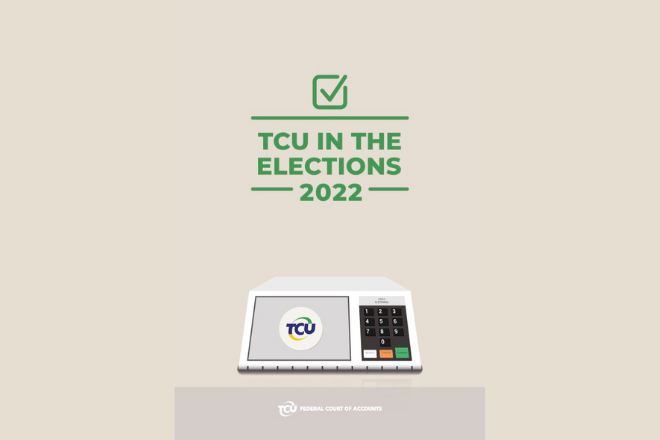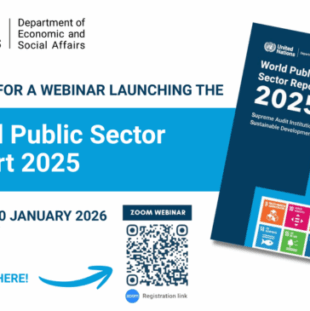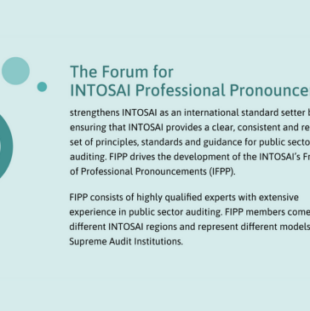Brazilian Voting System Audit Highlighted at Event in Panama

An international seminar brought together legislators and representatives of Supreme Audit Institutions (SAIs) from Latin America and the Caribbean on April 20, 2023, in Panama City, Panama
Legislators and representatives of Supreme Audit Institutions (SAIs) from Latin America and the Caribbean met at an international event on April 20, 2023, in Panama City, Panama. The president of the Brazilian Federal Court of Accounts (TCU) and chair of the International Organization of Supreme Audit Institutions (INTOSAI), minister Bruno Dantas, highlighted the Brazilian experience in ensuring that democracy was maintained in the Brazilian electoral process of 2022, when electronic ballot boxes were audited, certifying the smoothness of the electoral process.
The meeting took place during the International Seminar: Parliament and Supreme Audit Institutions working together. The objective of the meeting was to share experiences and good practices carried out between legislators and SAIs in the region regarding issues related to accountability and audits.
At the beginning of his speech, the president of the TCU and chair of INTOSAI raised the question: “in what way can a supreme audit institution contribute to the defense of democratic values?” For Dantas, “in a contemporary scenario, we can conceive of supreme audit institutions as guardians of public affairs and players in guaranteeing the systems of checks and balances.” He added: “[SAIs are] fundamental institutions, therefore, for the proper functioning of democratic governments”.
Over the years, the TCU has been an institution accredited to monitor and audit Brazil’s electoral process. “When asked what the Court’s motivation is, I usually respond that it is the same and only one: the defense of public interest and democracy,” the minister said.
In the case of the 2022 presidential elections, the Court’s position was supported by repeated judgments of the TCU Plenary, a collegiate body. “All decisions were unanimous. And the audit team’s conclusions were approved, composed entirely of federal auditors of external control, experienced public servants, who enjoy, by law, technical autonomy,” said the president of the TCU and chair of INTOSAI.
According to Dantas, the TCU, as the ultimate provider of public transparency in Brazil, took on the responsibility of attesting to the veracity of the information in the electronic system by means of serious and responsible audits, with a robust and appropriate methodology for its proposed purposes. “The result of the audit was categorical: the ballot boxes are reliable, the electronic voting system is robust, which made the narrative used in the electoral campaign to attack them fall apart,” concludes the minister. “It is the Court’s duty, stated in its strategic plan, to guarantee the reliability of the information passed on by public institutions to society,” said minister Bruno Dantas.
After the successful auditing process of the ballot boxes and, after the 2022 general elections, the TCU established, unprecedentedly, a commission of ministers to follow the whole transition process between governments. This made it possible for the future president of the Republic to receive from his predecessor all the data and information necessary for the implementation of his government’s program.
Besides highlighting the Brazilian experience in guaranteeing that democracy would be maintained in the Brazilian electoral process of 2022, president Bruno Dantas, as chair of INTOSAI, reinforced other initiatives of the TCU. Among them, priority projects are included in areas such as global voice, sustainability, gender inclusion and equality, communication, digital transformation, and infrastructure.
Other authorities also participated in the event. Among them:
- President of the Latin American and Caribbean Parliament (PARLATINO), Argentine Senator Silvia del Rosario Giacoppo;
- President of the Inter-Parliamentary Union (IPU), Deputy Duarte Pacheco;
- Comptroller General of the Republic of Panama, Gerardo Solis Diaz;
- President of the National Assembly of Panama, Crispiano Adames;
- In addition to authorities from Paraguay, Cuba, Mexico, Curacao, Honduras, El Salvador and Bolivia.
The seminar is organized by the presidency of the Latin American and Caribbean Organization for Supreme Audit Institutions (OLACEFS) in conjunction with the Latin American and Caribbean Parliament (PARLATINO).
About PARLATINO
PARLATINO is a regional group of the International Parliamentary Union that brings legislators from Latin America and the Caribbean together. It is similar to the Latin American and Caribbean Organization for Supreme Audit Institutions (OLACEFS), a regional member of INTOSAI.
PARLATINO was formed in 1964, in Lima, Peru, but the Institutionalization Treaty was signed later, in 1987. Brazil was present at both times. Deputy Ulysses Guimarães (1967-1968), Senator Nelson Carneiro (1982-1985) and Deputy Ney Lopes (2002-2006) have already chaired the institution.





